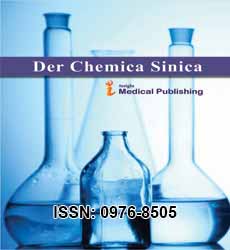ISSN : 0976-8505
Der Chemica Sinica
Impact of Red Wine Consumption on Human Health
Hidasy C*
R&D Wing, Fine Treatment, Oxford, United Kingdom
- *Corresponding Author:
- Hidasy C
R&D Wing, Fine Treatment
Oxford, United Kingdom
E-mail: c.hidasy@gmail.com
Received Date: December 07, 2021; Accepted Date: December 12, 2021; Published Date: December 17, 2021
Citation: Hidasy C (2021) Impact of Red Wine Consumption on Human Health. Der Chem Sin Vol. 12 Iss No.12:58.
Red wine is popular all over the world and is helpful due to the existence and quantity of its ingredients. Winemaking and wine consumption have been practised for many millennia. Wine's health benefits were known to the ancient Romans, who popularised it. Wine is the primary product of grapes. Water, carbohydrates, organic acids, minerals, alcohol, polyphenols, and aromatics make up the majority of wine. Antioxidants are required for proper cardiovascular function. They can be found in a variety of plants, including fruits (and their derivative products, such as jams, juices, wine, and so on) and vegetables. Their inclusion in food and drink lowers the risk of cardiovascular disease, some malignancies, and diabetes.
Polyphenols are one of the most famous types of wine components. The composition and exact quantity of polyphenols are affected by factors such as grape type. White wines often have fewer polyphenols than red wines. Wine has a lengthy history of use as an early type of medication, being advised as a safe alternative to drinking water, an antiseptic for treating wounds, a digestive aid, and a remedy for a variety of maladies such as lethargy, diarrhoea, and childbirth pain. Although many chemicals in red wine are being studied for their potential health benefits, resveratrol has been particularly well studied and evaluated by regulatory authorities such as the European Food Safety Authority and the US Food and Drug Administration, which have identified it and other such phenolic compounds as not being sufficiently understood to confirm their role as physiological antioxidants. Individual polyphenols are antioxidants found in various red purple berry fruits, grapes of red wine, Aronia, and so on.
Wine contains phytochemicals with estrogenic effects, such as lignans, quercetin, and resveratrol. The preventive effects of lignans on the development of human esophageal cancer have demonstrated that these three phytochemicals can diminish esophageal cancer synergistically. The intestines are essential organs in the digestive system's gastrointestinal tract, and malignancies of the intestines are the third most prevalent malignancy in men and women, accounting for 9% of overall cancer fatalities. Wine polyphenols can prevent or slow the progression of inflammatory bowel disease of the colon and small intestine. Wine polyphenols operate as free radical scavengers and gene modulators, as well as probiotics and antimicrobials. The stomach comes after the oesophagus.
Heliobacter pylori, a gram-negative bacterium, can invade the gastric mucosa. Alcoholic beverages, particularly red wine, are thought to have antibacterial action against Helicobacter pylori as well as a protective impact against ethanol's ulcerogenic effect on stomach mucosa. These positive effects are attributed to flavonoids. The liver is the next organ affected by wine drinking. Hepatocellular carcinoma, often known as primary cancer, is the world's sixth most prevalent cancer. Pancreatic cancer has few early symptoms and is usually detected in its advanced stages. Alcohol has been touted as a possible treatment for pancreatic cancer. Wine polyphenols may be useful in the prevention of cardiovascular disease (CVD).
Clinical studies demonstrate that moderate wine drinking can influence CVD. Many scientists, as well as scientific testing and clinical research, back up these claims, however some deny resveratrol's therapeutic effects. According to the study, the chemicals in red wine and their combined activity, when they complement each other, provide the desired effect, which is protection against cardiovascular illnesses. Resveratrol works by neutralising free oxygen radicals and reactive nitrogenous radicals, which reduces damage to the cardiovascular system caused by oxidative stress.

Open Access Journals
- Aquaculture & Veterinary Science
- Chemistry & Chemical Sciences
- Clinical Sciences
- Engineering
- General Science
- Genetics & Molecular Biology
- Health Care & Nursing
- Immunology & Microbiology
- Materials Science
- Mathematics & Physics
- Medical Sciences
- Neurology & Psychiatry
- Oncology & Cancer Science
- Pharmaceutical Sciences
